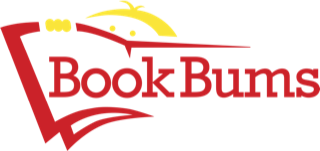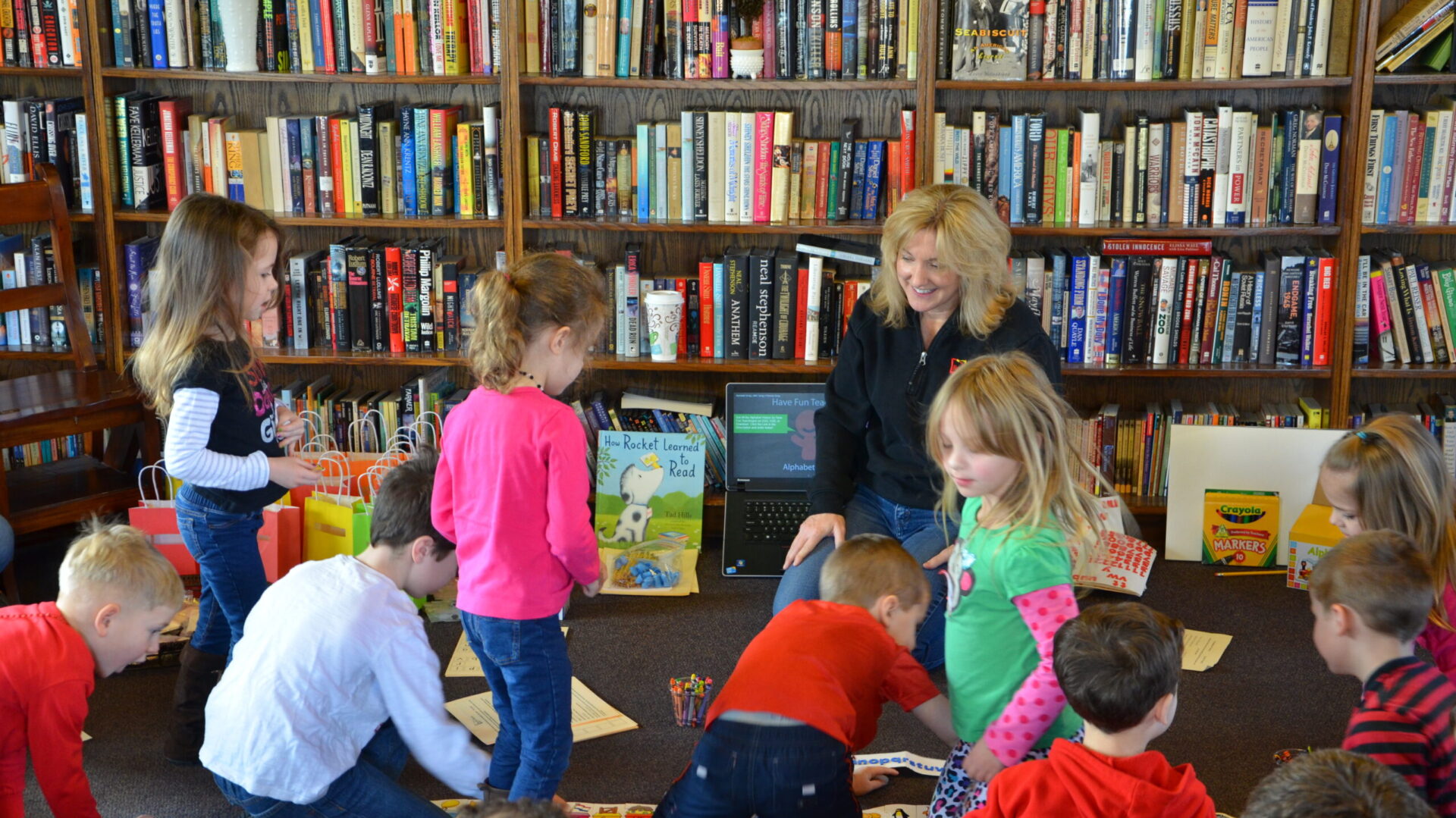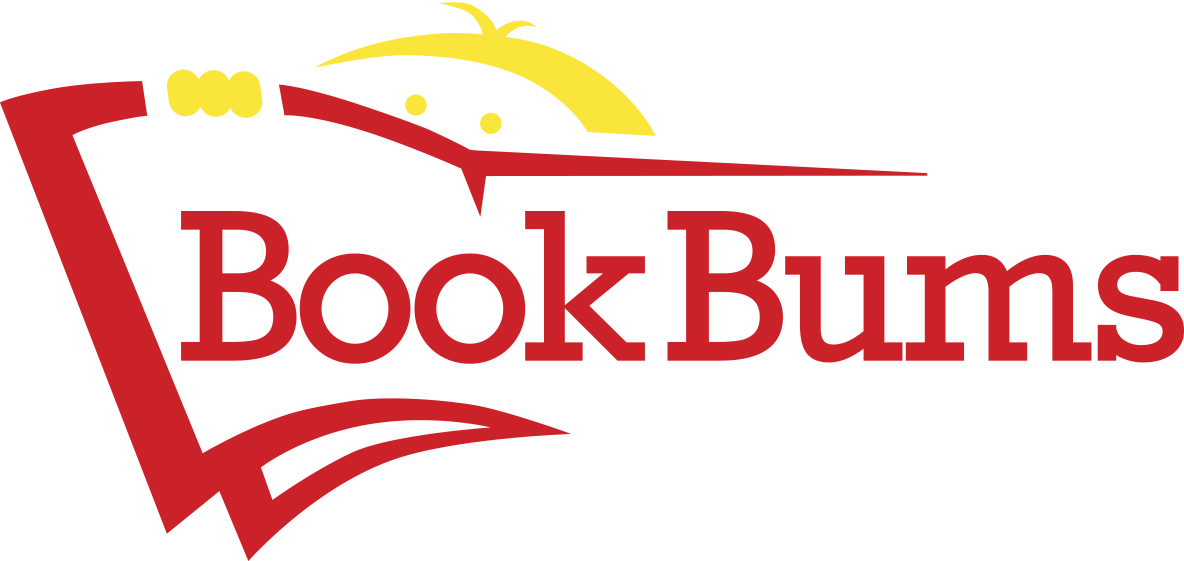
Hello Book Bums families!
This week's newsletter has something for everyone: a deep dive into some nautical non-fiction, eclipse day ideas, teacher talk about syllables and phonemes, and some poetry and book recs as well.
What would you like to see in an upcoming newsletter? Get in touch by replying to this email to let us know.
Bookbums.com is an Amazon Associate; We earn from qualifying purchases. This means that if you click on a link to Amazon.com and make a purchase, We may earn a small commission at no extra cost to you. We do recommend the products. Feel free to find them by other means.
Word of the Week
dispel (dis-pel) verb/action word - to drive away or get rid of as if by scattering
To learn something new, often we must first dispel the incorrect ideas we hold before understanding the new.
Literary Calendar
- The second week of April is National Library Week.
- Observe the week by making a trip to your local library. Explore an area or offering you haven't experienced before.
- Our local Midpointe library system has programs and resources for preschoolers, seniors, teens, inventors, travelers, puzzlers, studiers, and readers.
- Thank a librarian for the valuable work they do each day!
"When you absolutely have to know, ask a librarian."
- American Library Association
From our Bookshelves
A dear childhood friend sent lots of goodies for me to share with my grandkids. She sent us a Shark Teeth postcard, lots of real shark teeth that she picked up from the beach near her home in North Carolina, an identification card that we can use to learn which teeth go with which sharks, and she even included other found treasures for us to explore!
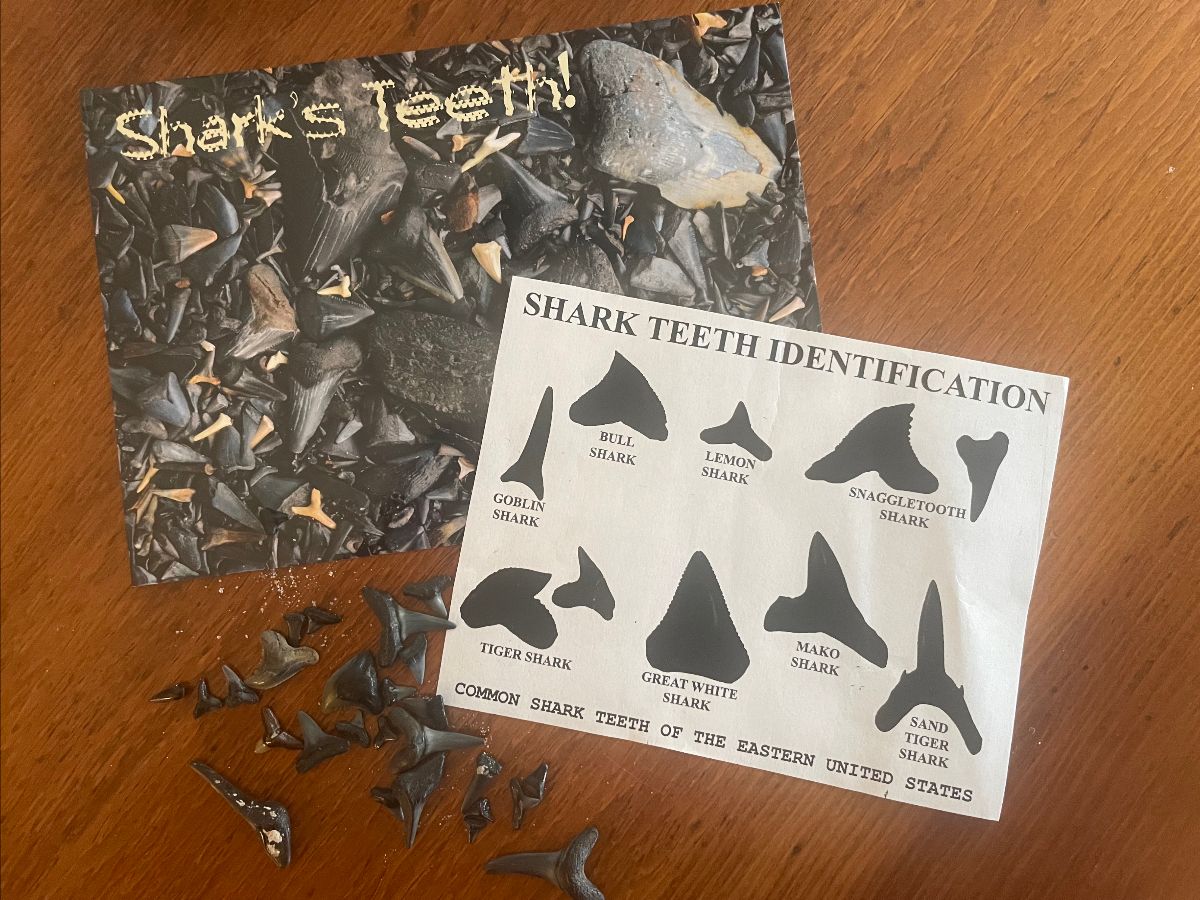

This wonderful gift inspired an exploration. Since my granddaughter is now nine years old, I thought Shark Lady: The True Story of How Eugenie Clark Became the Ocean’s Most Fearless Scientist by Jess Keating would be the perfect book for us to share. Sharp readers may remember I mentioned this book in a past newsletter. Let me tell you more about it.
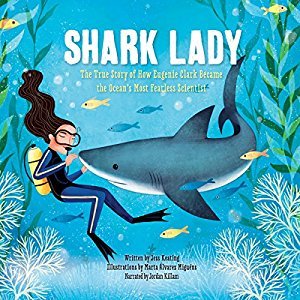
Shark Lady is about a little girl, Eugenie Clark, whose favorite animals were sharks. Eugenie decided to learn everything she could about them, so she dug into books and kept notebooks filled with all she learned. (Don’t you just love kids’ books that teach kids how to pursue their dreams?)
Shark Lady is also about a woman breaking barriers. Today, Eugenie is considered a scientific pioneer. She was born in NY, in 1922, to an American father and Japanese mother. She was a regular visitor at the NY aquarium, and from the time she was a young girl, she was determined to study sharks and dispel myths and fears about them through education—even when people didn’t believe it was possible for a woman to do so.
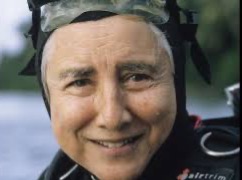
Do you remember when it was believed that sharks must keep moving to survive? Eugenie was the one who dispelled that myth when she discovered an underwater cave filled with lots of motionless sharks.
Clark died at the age of 92 in 2015, but she’s still famous for saying, “Even the tiniest creature on Earth has purpose. There is no such thing as an insignificant life.” What a lovely sentiment encapsulating the interconnectedness of every creature in our beautiful world.
I was thinking . . .
Eugenie was called the shark lady because that’s what she loved enough to devote her life to. What would people call you?
My grandkids and I are going to send a thank you note to my sweet friend, Amy, for sending us those ocean treasures. I ordered 100 Eugenie Clark Forever stamps for only $29.99 to affix to our envelope. You can order some too!
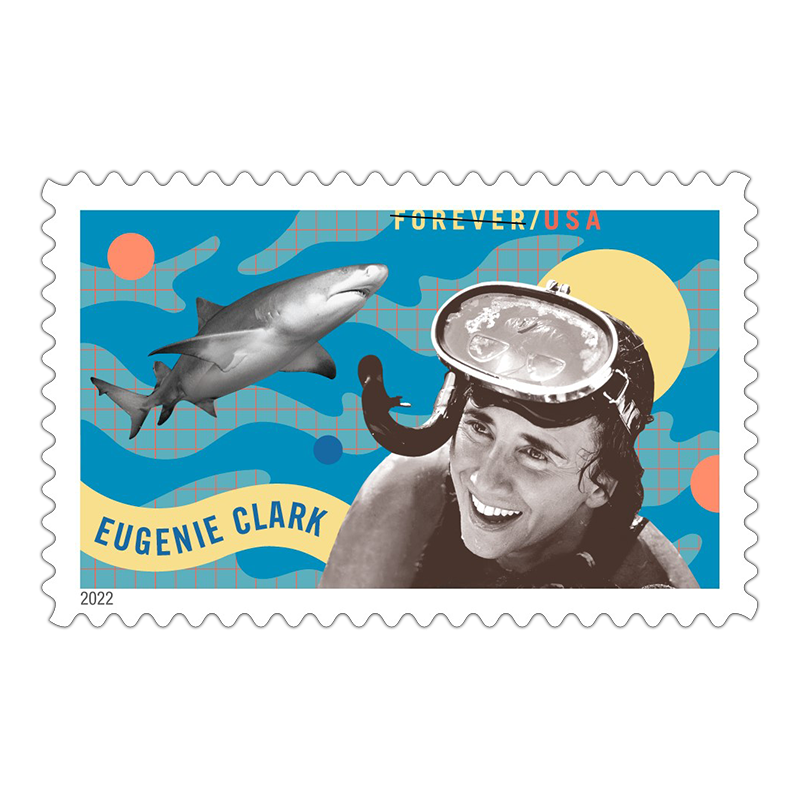
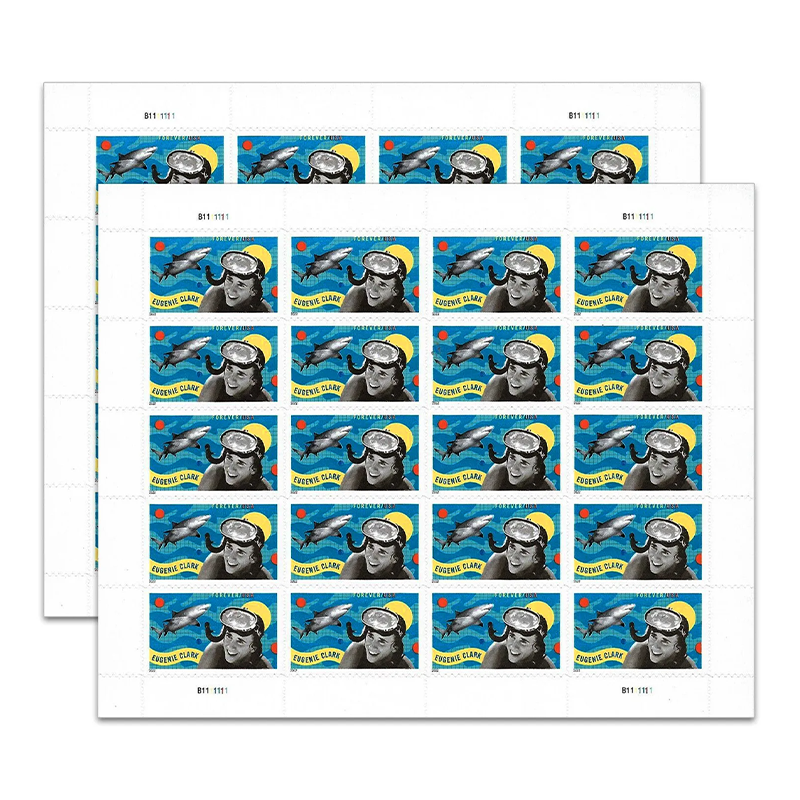
You should know that Shark Lady isn’t a boring ol’ nonfiction book. In it, you’ll find gorgeous writing sharing lots of facts that just might inspire your young readers to pursue their own dreams.
Check out what my mermaid-loving granddaughter and I discovered.
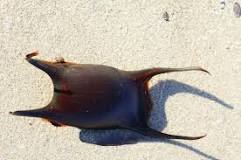
These leathery pouches are often called mermaid's purses. Though most sharks give birth to live young called pups, some sharks lay eggs in these tough cases.
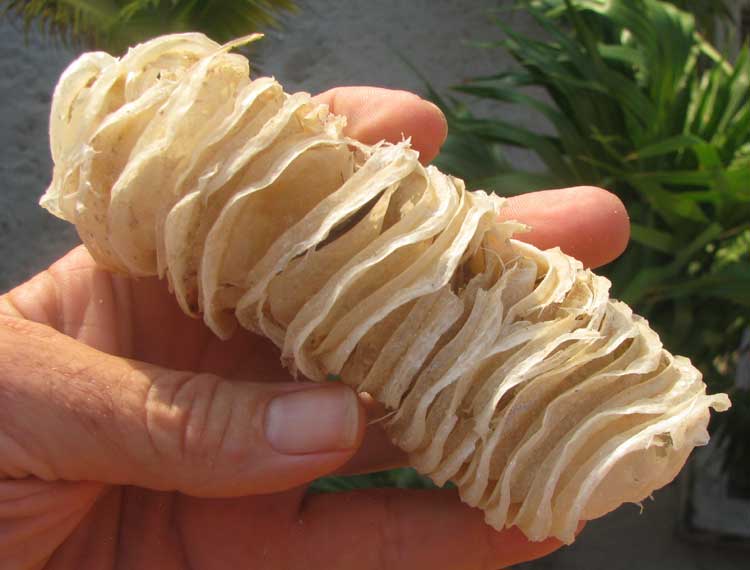
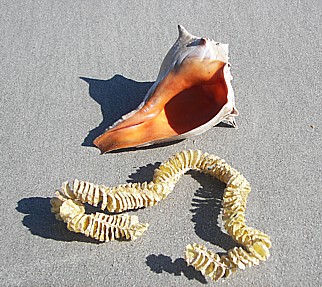
Strings of wafers like these are often called mermaid’s necklaces. They’re actually whelk egg cases and can be from two to three feet long. The shell in the right-hand image is a whelk, a snail-like mollusk.
To promote benevolence toward sharks with your younger kids, check out Shark Bite, by Little Bee Books and pick up some Baby Shark fruit snacks by Funables. And you can’t forget the “Baby Shark” song. It may be an earworm, but it’s so much fun for kids.
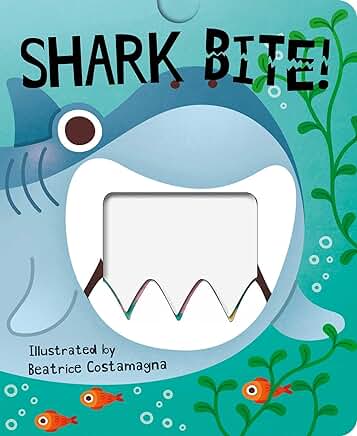
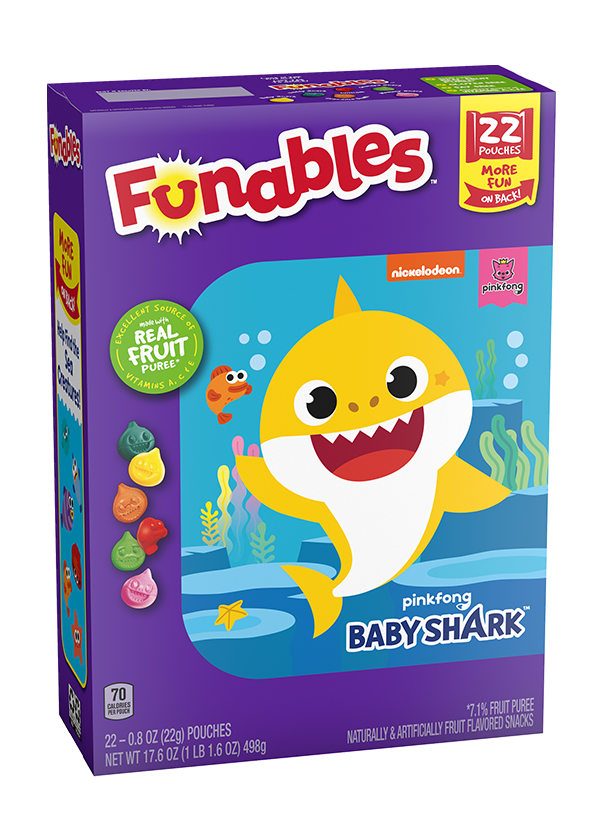
Tips for Families
Are you looking for information about local total solar eclipse events? Check out this link from Travel Butler County. Many businesses hosting events are including glasses to those in attendance.
I heard that the Donut Dude, on Cincinnati-Dayton Road in Liberty Township, is selling six donuts with representations of the eclipse in six different stages. What a sweet way to enthuse your kids about this incredible experience!
Looking for information you saw in a previous Book Bums newsletter? Great news! You can check our website and scroll to the bottom to find our Newsletter and Blog Posts. You’ll find them organized by date, AND we have included Amazon Affiliate links on those posts so if you see something you’d like to check out, you can use our link and support Book Bums in the process.
Practical Grammar
We’re just keepin’ it real this week, in the grammar department. First, let’s address the misuse of the word real.
Have you ever said:
Listen, real quick . . .
or
My head hurts real bad.
or
She did real well.
If so, take note.
When we can replace the word real with very, we should be using really, not real.
Real is an adjective/a word describing a noun. Is that a real plant?
Really is an adverb/a word that modifies a verb, (The puppy really eats a lot.), adjective (The tea is really hot.), or another adverb (She sings really loudly).
Note: Adverbs often end with -ly, like we see in really, but not always.
Now, here’s another issue with real:
How do you pronounce realtor?
Do you say it with two syllables /real-ter/ or three /real-uh-ter/?
According to many, many resources, the only correct pronunciation is /real-ter/ with two syllables.
Raise your hand if you are a 3-syllable offender.
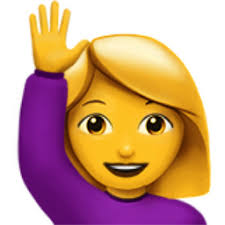
Tips for Raising Readers and Writers
Not so fast, there. It’s a new section, but we’re not letting go of the sounds in words situation.
When I looked up the word real in the dictionary, I found this representation: re·al in four of eight dictionary entries. That’s TWO syllables.
If one says /re-al-ter/, that sounds a whole lot like three syllables, doesn’t it?
Would we agree that real and heel and meal are rhyming words? The thing is heel and meal are showing up as single syllable words. What?!
If you (like me) are hearing two syllables in these words, you can see why teaching kids about the sounds in words (promoting an awareness of phonemes) can be excruciatingly difficult.
How many sounds are in the word two? Two, /t/-/oo/.
How many sounds are in the word three? Three, /th/-/r/-/ee/.
How many sounds are in the word six? Four. (Were you tricked by this one?) It’s /s/-/i/-/k/-/s/.
When creating phonemic awareness activities for our Foundations of Literacy phonics lessons, I deliberately avoid even basic words like I, a, and go because counting sounds is really tricky. I has only one letter, but it feels like two sounds: /ah/-/ee/. For a, do you hear /eh/-/ee/? For go do you hear /g/-/uh/-/w/?
It’s difficult!
That’s why we say it’s essential for kids to have an awareness of the sounds in words, but at some point, kids must know the spellings of sounds without attending to every discrete sound unit. This is one of the reasons popular phonemic awareness programs like Heggarty are not considered to be aligned with the science of reading. Teachers often disagree about the sounds in words. How can we expect kids to figure it out when we can’t do it ourselves?
I see posts with images like the one below, often. Teachers are always asking one another how to stretch out the sounds.
The top one is not right, but it attempts to address all four phonemes, one per box. The problem is that the o doesn’t represent the sound /a/.
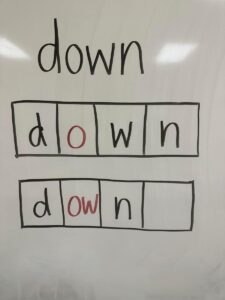
The bottom representation is what we teach at Book Bums, but we don’t address each box as a single phoneme.
When kids are too phoneme minded, spelling even simple words like down can be challenging. Kids just need to know that o-w says /ow/. It doesn’t matter that /ow/ has two sounds. At Book Bums, we aren’t stymied by tricky phonemes.
Pause for Poetry
Perhaps the World Ends Here
by Joy Harjo
The world begins at a kitchen table. No matter what, we must eat to live.
The gifts of earth are brought and prepared, set on the table. So it has been since creation, and it will go on.
We chase chickens or dogs away from it. Babies teethe at the corners. They scrape their knees under it.
It is here that children are given instructions on what it means to be human. We make men at it, we make women.
At this table we gossip, recall enemies and the ghosts of lovers.
Our dreams drink coffee with us as they put their arms around our children. They laugh with us at our poor falling-down selves and as we put ourselves back together once again at the table.
This table has been a house in the rain, an umbrella in the sun.
Wars have begun and ended at this table. It is a place to hide in the shadow of terror. A place to celebrate the terrible victory.
We have given birth on this table, and have prepared our parents for burial here.
At this table we sing with joy, with sorrow. We pray of suffering and remorse. We give thanks.
Perhaps the world will end at the kitchen table, while we are laughing and crying, eating of the last sweet bite.
Just for Fun
This one’s for our teachers . . .
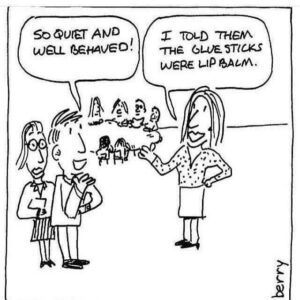
If you know someone who would benefit from our newsletter or tutoring at Book Bums, please share this email with them! Thank you.
Copyright © 2024 Book Bums, All rights reserved
Our mailing address is:
7967 Cincinnati-Dayton Road Suite L
West Chester, OH 45069
